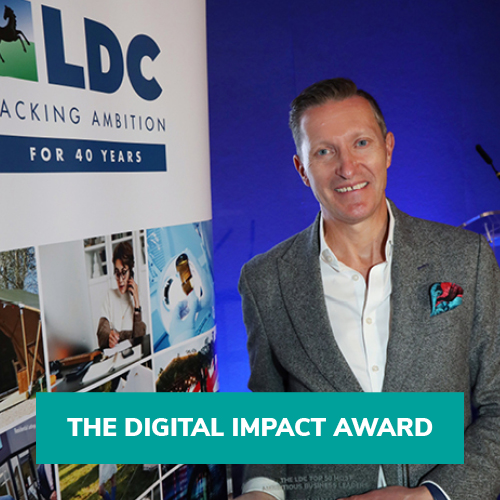
LDC Top 50 2022
Tim Barclay
CEO
Appello
“It’s genuinely motivating to wake up every morning knowing that we’re making a difference to the quality of people’s lives,” says Tim Barclay, CEO of Hampshire-based Appello, which designs and develops technology-enabled care solutions for the elderly and vulnerable. A former BT senior executive, Barclay joined Appello in 2017, spotting the potential to materially grow the business.
“We surveyed about 1,000 residents living in supported, sheltered and retirement housing where we’d installed our smart living solutions; 90pc said it made them feel safer and more than half said their wellbeing had improved. That’s massively inspiring,” he says.

It’s genuinely motivating to wake up every morning knowing that we’re making a difference to the quality of people’s lives.”
Q&A
What made you join Appello?
I’ve spent most of my career trying to be in the right place at the right time. Whether it was Vodafone introducing the country’s first GSM mobile phone network or Openreach rolling out super-fast broadband, I’ve been part of a number of telco and tech innovations. The chance to join Appello immediately resonated with me. It was in a sector with huge growth potential, and it was doing good things for society. There was an opportunity for the company – by being better-led – to do even more.
What were the main challenges?
The business was being dragged down by its loss-making maintenance division. When I joined, it was likely that I’d have to make about 120 people redundant – roughly 40pc of the workforce. That was a horrible prospect. But I was able to sell off that division and protect nearly every job, which was one of the proudest moments of my career.
What motivates you?
There’s been a preconception that elderly people can’t use technology, or they won’t live long to make it worth deploying. Not only is that belittling, but it’s completely untrue. We surveyed about 1,000 residents living in supported, sheltered and retirement housing where we’d installed our smart living solutions; 90pc said it made them feel safer and more than half said their wellbeing had improved. That’s massively inspiring.
